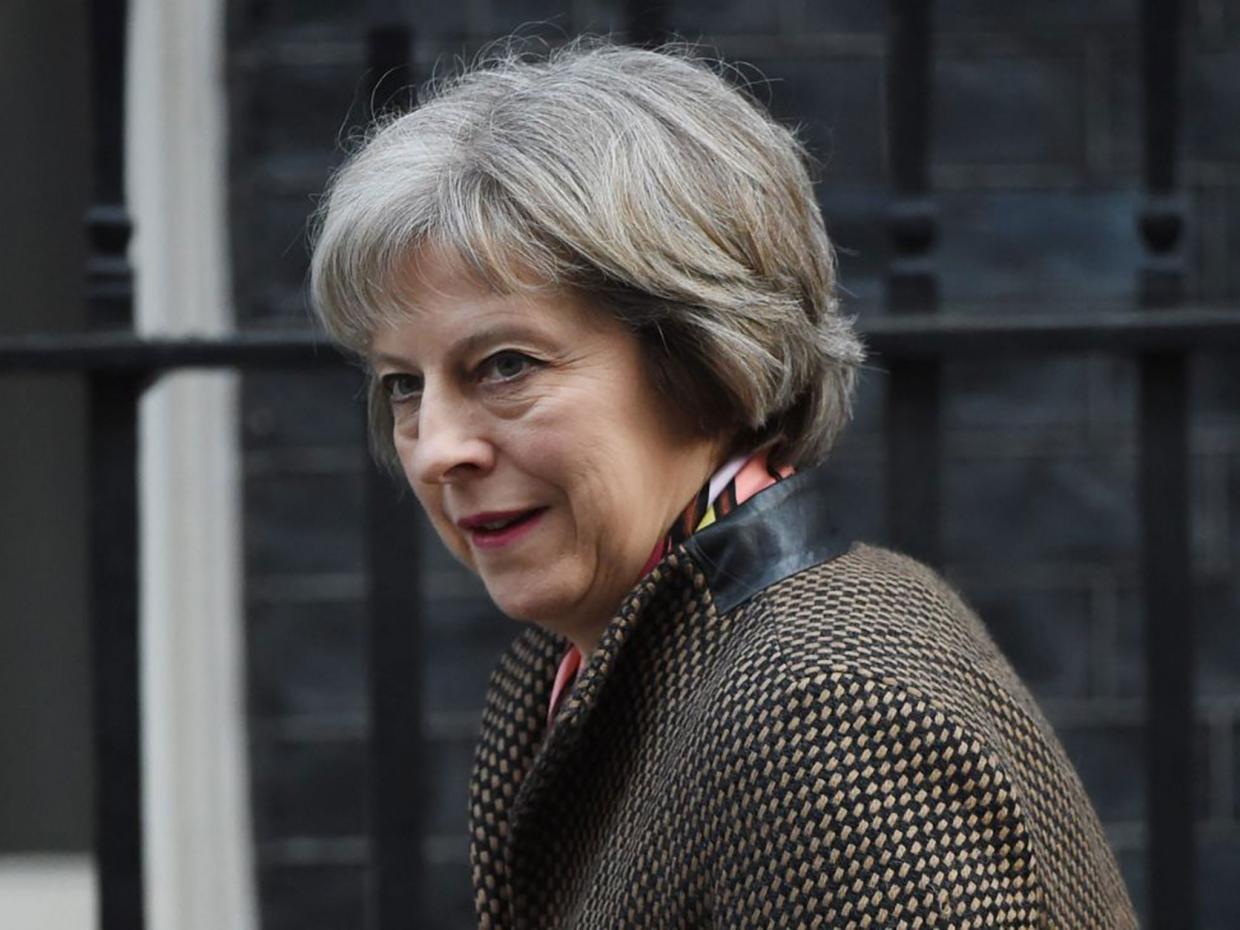May Leaves Brexit Questions Unresolved After Setting Trigger

EghtesadOnline: Business groups and opposition parties pressed Prime Minister Theresa May for more detail after she said she’ll start pulling the U.K. out of the European Union in the first quarter of 2017,and hinted that she’s tending toward a so-called hard Brexit.
The premier told her Conservative Party’s annual conference in Birmingham, central England, that she’ll invoke Article 50 of the EU’s Lisbon Treaty -- the formal trigger for two years of talks -- by the end of March. May also said she’ll introduce a bill to convert all existing EU laws into U.K. legislation to provide certainty for business and investors. But she left unanswered most questions about what Brexit will actually look like, reports Bloomberg.
“The prime minister has removed one big question -- on timing -- but has accelerated an urgent need for answers on others,” Confederation of British Industry Director-General Carolyn Fairbairn said in a statement. “Businesses cannot continue to operate in the dark in other areas.”
May, attending her first Tory conference as leader after June’s referendum decision to quit the EU upended British politics, is having to balance the will of the electorate with the demands of a fractious party and the desire of business for as little disruption as possible.
The pound is meanwhile being undermined by speculation of a hard Brexit in which Britain would willingly surrender membership of the single market for trade in return for more power over immigration, law-making and the budget. Sterling fell as much as 0.5 percent against the dollar in early trading in Asia following May’s comments.
‘Real and Pressing’
The decisions business face “are real and pressing,” said Fairbairn. “The government’s desire to play its negotiating cards close to its chest must be tempered by clear indications on how we will trade with the U.K.’s most important partner and how firms will be able to employ the people needed to drive growth.”
May on Sunday pledged to control immigration in Britain’s best interests while retaining access for business to the single market, seeking “the best deal possible” for U.K. companies.
“I know some people ask about the ‘trade-off’ between controlling immigration and trading with Europe. But that is the wrong way of looking at things,” she said. “We will do what independent, sovereign countries do. We will decide for ourselves how we control immigration. And we will be free to pass our own laws.”
Those words on migration indicate that May is “leaning towards a hard Brexit,” Anand Menon, professor of European politics at King’s College, London, said in an interview. “But I don’t think that’s necessarily where we get to from here. The bits about having the best possible trading relationship are important, and there’s a long way to go.”
Jobs ‘Disaster’
The leader of the pro-EU Liberal Democrat party, Tim Farron, said “May has just confirmed that we are going for a hard Brexit.” Such a move “means disaster for British jobs, businesses and our economy,” he said in a statement.
As well as commerce and immigration, the U.K. and EU must find common ground on rights for their citizens in each other’s territory, the border between the two Irelands and what, if anything, the U.K. contributes to the EU budget. There are also a string of legal, regulatory, energy, agricultural and security issues to address.
“The terms under which the U.K. will eventually leave the EU have not become any clearer,” Carsten Nickel, deputy director of research at Teneo Intelligence in Brussels, said in a note to investors. “The uncertainty surrounding the Brexit process will remain heightened for the foreseeable future.”
Customs Union
May’s trade secretary, Liam Fox, suggested that leaving the EU’s customs union would not be a serious problem for the U.K.
“Most businesses in the world are outside the European Union. The United States is outside the European Union -- it doesn’t seem to be seriously hampered in doing business with Europe because it’s not in the customs union,” he told an event at the conference on Sunday when asked how businesses would avoid more red tape outside the customs union. “You have to be rational about all of that.”
May’s announcement means the two years of Brexit negotiations should be completed in 2019, 46 years after the country joined what was then the European Economic Community, though Fox cast some doubt on that timetable. “What we want is the best exit for the United Kingdom, not the quickest,” he said. “I wouldn’t put a timescale on it.”


